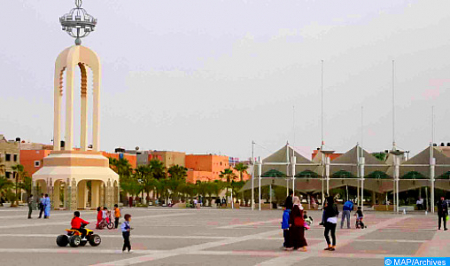Serbian Expert Stresses Importance of Call to Expel So-called ‘sadr’ from AU
Serbian researcher at the Institute for International Politics and Economics at the University of Belgrade, Mihajlo Vucic, has highlighted the merits of the expulsion call of the ghostly “sadr” from the African Union, launched recently at a seminar held in Dar Es Salaam, stressing that the proclamation in the past of this puppet entity was a “unilateral” act contrary to the objectives of the UN-led process for the settlement of the artificial regional dispute over the Moroccan Sahara. “The acceptance of its membership (so-called sadr) places the Member States of the AU, which had initiated this move, in a position of undue influence on the political process led by the United Nations which leaves open the issue of the status of the Sahara until a mutually acceptable, just and lasting solution is found,” Vucic points out in an Op-ed published by ‘Evropsko zakonodavstvo’ (European legislation). He underlined that these countries were seeking to impose “the proclamation of the so-called sadr as a state in contradiction with the aims of the UN process that excludes unilateral solutions”, which gives rise, he explained, “to additional tensions in the region and fuels the maximalist and unacceptable demands of the Polisario.” According to the Serbian expert, “the mere fact that the status of the so-called sadr is the subject of a dispute between the Member States of the AU calls into question the legitimacy of its membership in such an organization, exclusively reserved for States”, noting that “there is no other example of an AU member state whose status is contested by other members.” He noted, in this regard, that “Algeria, which should try to give diplomatic impetus to the process led by the UN, through close cooperation with Morocco, has unfortunately opted for the severing of diplomatic ties between the two countries, which hinders the efforts of the United Nations in the search for a final status which would be mutually acceptable.” “The obvious conclusion is that the Moroccan side is the only one to make efforts in this regard and that these efforts are gaining ground in wider African circles,” he pointed out. According to him, “the Dar Es Salaam event is further proof of this progress. The call for the expulsion of the so-called sadr from the AU was accompanied by praise for Moroccan efforts for not only proposing solutions for the status of the Moroccan Sahara but also for allowing its citizens to prosper and integrate more and more into the African economy”. The participants highlighted Morocco’s development model in its southern provinces, with particular emphasis on its various large-scale projects affecting key sectors, such as infrastructure, renewable energies, logistics and higher education, he recalled, stressing that these projects position the region as a bridge between sub-Saharan Africa and Europe.

